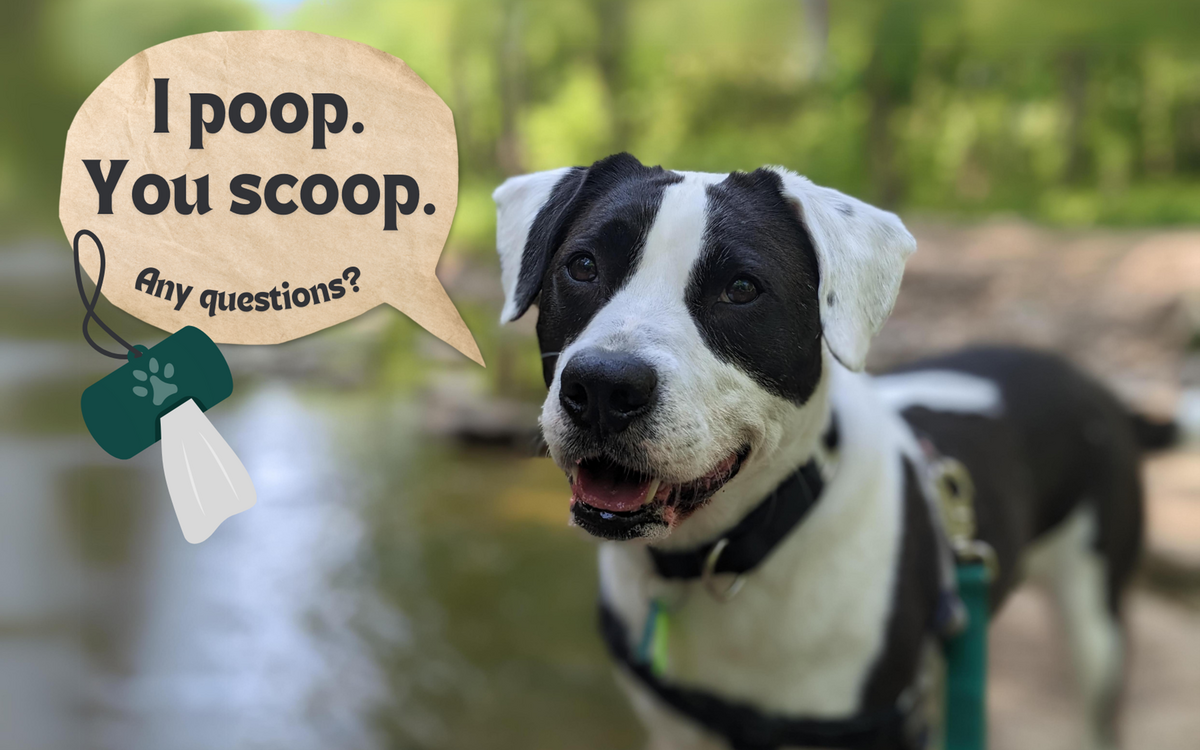Pet Waste Management

Pet Waste Management
Does your pet poop? Of course, he does! Do you always pick it up? We hope you do! This month, we talk about how pet waste negatively impacts the quality of our public health/local waters and what you can do to help.
According to the U.S. Environmental Protection Agency, pet waste is a leading source of nutrient and bacteria pollution in urban streams and waterways. Scruffy might be cute and cuddly, but his poop spreads zoonotic diseases (transmissible to humans) with ingredients like E. Coli, Giardia, Salmonella, Roundworms, Tapeworms, and more. Pet waste contaminates stormwater when it rains, eventually reaching your local creek or lake. Considering that more than half of Ohio’s residents get their drinking water from surface water sources, keeping our water as clean as possible is essential. Have you ever noticed your neighborhood pond or retention basin filled with algae? Decomposing pet waste also pollutes water with excess nutrients, causing algae to bloom out of control and harm other aquatic life.
Some communities in Warren County have pet waste management ordinances. For example, the City of Lebanon considers a violation of §505.08 Removal of Dog Excrement (Ord. 6569) a minor misdemeanor and can fine up to $150.
Can pet waste be used as fertilizer?
Dog poo, in its raw form, is NOT a fertilizer. Due to a high-protein diet, dog poop is acidic and will kill your lawn and plants. However, a 2005 study by the USDA and Fairbanks Soil & Water Conservation District found that dog waste from healthy individuals is a safe mulch or soil additive for landscaping (NOT for human consumption) when composted properly. The process involves mixing waste with carbon-rich materials, paying attention to airflow and moisture, and maintaining a temperature of at least 145°F for several days. Please note- “Cats may carry parasites that are harmful to human fetuses. We do not recommend adding cat waste or cat litter to your compost.”
Pro-Tips
- Repurpose plastic shopping bags or newspaper sleeves for poo bags.
- Hire a pet waste pick-up service.
- Install an in-ground pet waste digester.
- For HOAs and residential communities:
- Install and maintain pet waste station(s).
- Utilize a DNA-testing waste management program.

